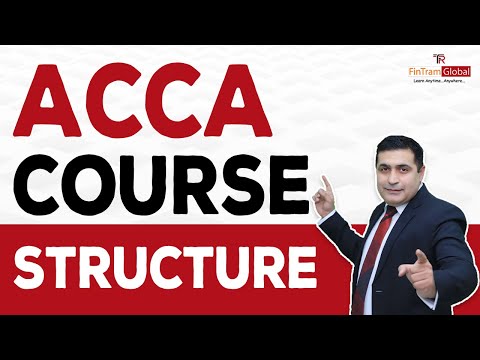
Unveiling the ACCA Course Structure: Your Path to Accounting Expertise
The Association of Chartered Certified Accountants (ACCA) qualification is a prestigious program that equips you with the skills to become a sought-after financial professional. But what exactly does the course entail? Let’s break down the ACCA course structure into its key components:
1. Three-Stage Journey:
The ACCA program is divided into three progressive stages:
- Applied Knowledge: This initial level establishes a strong foundation in accounting principles. You’ll tackle three exams focused on Business and Technology (BT), Management Accounting (MA), and Financial Accounting (FA).
- Applied Skills: Here, you’ll delve deeper, developing practical accounting competencies. Six exams in Corporate and Business Law (LW), Taxation (TX), Financial Reporting (FR), Performance Management (PM), Financial Management (FM), and Audit and Assurance (AA) refine your technical abilities.
- Strategic Professional: This final stage emphasizes strategic thinking and decision-making. You’ll take two compulsory exams – Essentials – covering corporate governance, risk management, and professionalism. Additionally, you’ll choose two optional exams from a pool of four, allowing you to specialize in areas like Advanced Audit and Assurance (AA) or Advanced Taxation (TX).
2. Flexibility is Key:
The ACCA program understands that learning styles differ. They offer a flexible approach, allowing you to:
- Choose Your Pace: Take exams full-time, part-time, or at your own speed.
- Select Your Learning Style: Opt for self-study, join classes with approved providers, or utilize online resources through ACCA’s learning platform, ACCA-X.
- Exam Scheduling: Many exams are computer-based and offered on-demand throughout the year. Others are held in four designated exam sessions.
3. Beyond Exams: Practical Experience and Ethics
To become a chartered member, the ACCA journey goes beyond exams. You’ll also need to:
- Complete a Practical Experience Requirement (PER): Gain valuable real-world experience through relevant work placements.
- Undertake an Ethics and Professional Skills Module: Develop the ethical grounding and professional conduct expected of an ACCA member.
Fintram Global’s approach integrates practical training with theoretical learning, preparing students for real-world challenges in accounting and finance. The ACCA qualification attained through Fintram Global opens doors to diverse career opportunities in accounting, finance, and business globally.
By successfully navigating the ACCA course structure, you’ll gain a comprehensive understanding of accounting principles, practical skills, and the ethical compass to excel in the dynamic world of finance.
Click here – https://fintram.com/what-are-acca-exam-levels-and-subjects-2/







